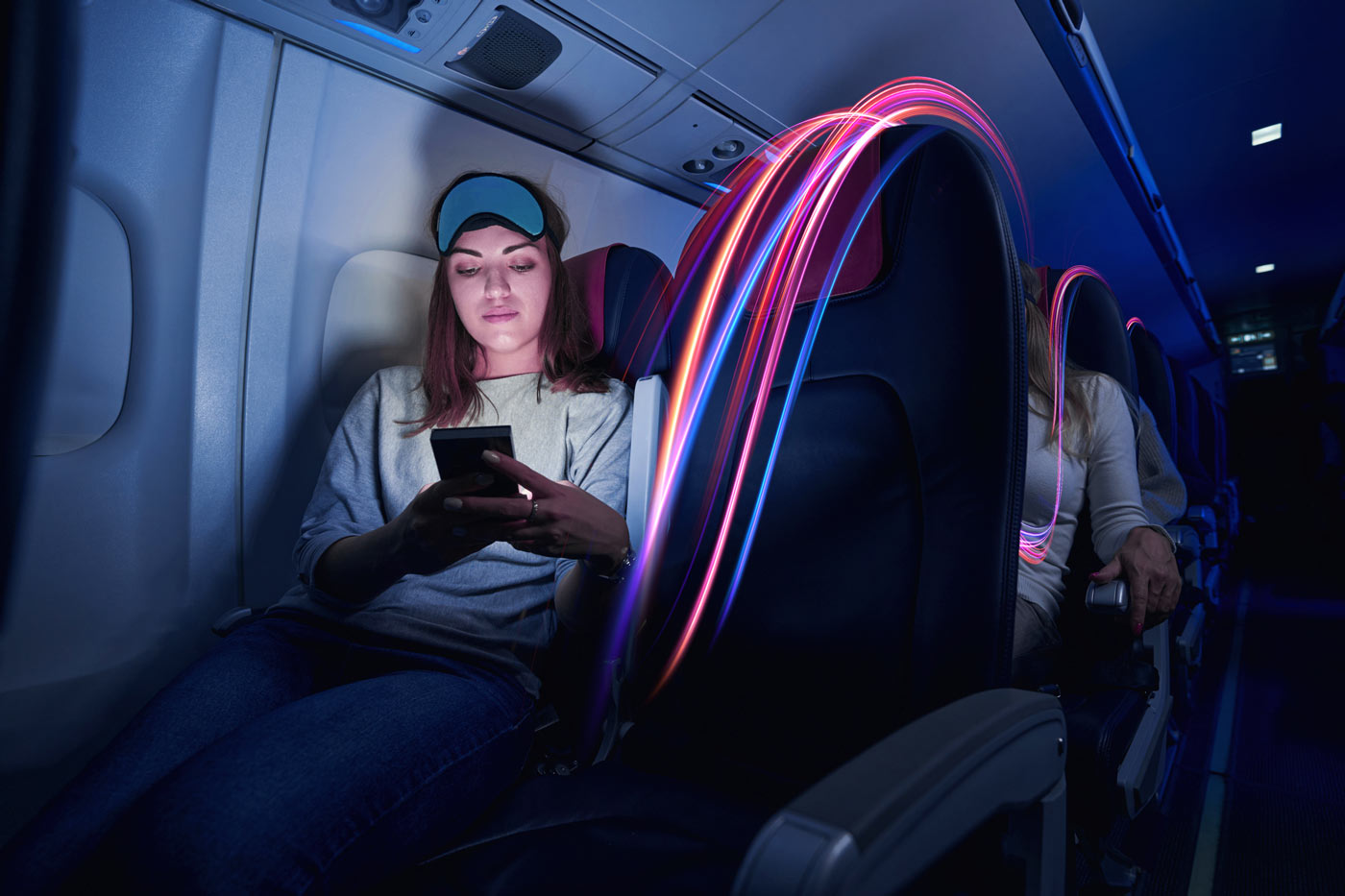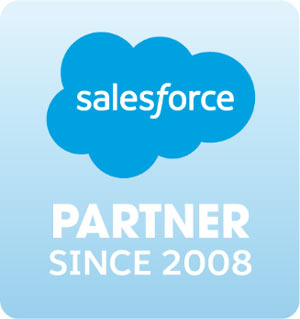Solve your toughest data challenges
Rather than disrupting potential customers with intrusive advertising, companies engage them through relevant, personalised, and value-driven content. This is the core principle of data-driven marketing. Our solutions enable structured, measurable, and effective customer acquisition strategies built on insight and precision.

Acxiom is a trusted partner to many of the world’s leading travel and hospitality brands, helping them acquire, engage, and retain high-value customers through the power of data. Our travel solutions combine advanced marketing technology, deep customer insight, and scalable services across identity resolution, CRM, loyalty, and omnichannel activation, enabling smarter, more personalised experiences at every stage of the journey.
Acxiom supports the full spectrum of the travel subsectors, helping brands connect with customers through smarter data, deeper insight, and more meaningful experiences.
Empowering airlines to personalise the passenger journey, optimise media spend, and build loyalty from booking to boarding.
Helping airports connect with travellers through data-driven engagement, improving experience and boosting non-aeronautical revenue.
Supporting hotel brands in driving direct bookings, increasing guest satisfaction, and enhancing loyalty through meaningful personalisation.
Helping cruise operators understand guest preferences, optimise targeting, and create unforgettable, data-powered experiences from shore to ship.
Enabling transport operators to unify customer data and deliver seamless, personalised experiences across every journey.

Travel marketing refers to the strategies and tactics used by businesses within the airline, tourism and hospitality industry to promote their services, destinations, or experiences to potential travellers. It encompasses a wide range of activities, from digital advertising and social media campaigns to technology partnerships, multi-channel and omni-channel communications, all aimed at inspiring, attracting, and converting audiences into customers. Effective travel marketing not only highlights the unique aspects of a destination or service but also taps into the emotions and aspirations of travellers, encouraging them to explore new places and create memorable experiences. In an increasingly competitive industry, travel marketing plays a crucial role in standing out and connecting with the right audience.
Effective travel marketing enhances brand visibility and establishes a meaningful connection with their target audience. It highlights the unique aspects of a destination, service, or experience, making it stand out in a crowded market. Through storytelling, visuals, and strategic campaigns, it builds trust and credibility among travellers. By utilising social media, influencer collaborations, and user-generated content, it expands reach and fosters engagement. Effective travel marketing not only drives bookings but also cultivates brand loyalty, positioning it as a preferred choice in this highly competitive industry.

Marketing a tangible product differs significantly from marketing a travel experience due to the nature of what’s being offered. Physical products can be seen, touched, and compared based on features or specifications, whereas travel experiences are intangible and emotionally driven. Instead of highlighting physical attributes, travel marketing focuses on the feelings and benefits travellers can expect – whether that’s relaxation, adventure, or cultural enrichment. As Acxiom highlights, understanding who the customer is allows brands to deliver timely and relevant experiences throughout the traveller’s journey, reinforcing the experiential focus over product features.
Another key distinction lies in consistency versus variability. While tangible products often aim for uniformity, travel experiences can vary widely depending on timing, location, and service quality. This means marketers must create a sense of uniqueness and manage expectations by highlighting memorable aspects and limited-time opportunities. Since travel cannot be tested before purchase, decisions rely heavily on trust, reputation, and personalisation. Acxiom’s emphasis on identity-based marketing reflects this need – using data to accurately identify and connect with travellers across channels, ensuring each interaction contributes to a strong, experience-led brand perception.

The travel and hospitality industry are more competitive than ever. Online travel agencies (OTAs), the rise of the sharing economy, and the ease of booking through digital platforms have dramatically shifted consumer expectations. Travellers now have limitless options at their fingertips, and in order to stand out, brands must offer more than great service. They must deliver exceptional, personalised customer experiences that build loyalty and respond to each traveller’s unique needs and context.
Today’s customers don’t just expect personalisation from individual brands, they expect the entire industry to work together. Travellers want seamless, end-to-end experiences that span multiple providers. They expect to book flights, accommodation, car rentals, dining, and entertainment through a single platform, with every element connected and coordinated for a smooth, friction-free journey.
Start by connecting your data sources. Create a privacy-safe single customer view that brings together behavioural, transactional, and CRM data. Without this foundation, personalisation won’t scale.
Build persistent identity into your strategy. Recognising the same traveller across web, app, email, and service touchpoints allows you to deliver timely, relevant experiences, not disjointed ones.
Stop targeting everyone. Prioritise high-intent, high-value audiences and suppress those who have already booked or are unlikely to convert. Focus on relevance, not reach.
Communicate quickly, consistently, and with empathy. When things go wrong, proactive messaging and tailored recovery journeys can make the difference between frustration and forgiveness.
Focus on what moves the needle. Activate your most valuable data, automate what you can, and prioritise the segments that bring the greatest return.
To understand how companies are responding to changing customer expectations, we commissioned award winning research and strategy agency MTM to survey CX decision makers from more than 200 travel and hospitality brands across the US and the UK. These included accommodation providers, transport brands, activities companies, travel agents, and restaurants. We asked about their approach to customer experience (CX), the technologies they’re using to support it, and the challenges they’re facing. Their responses show travel and hospitality brands fully understand the importance of personalized, seamless, connected CX.
Acxiom’s research shows that travel and hospitality brands fully understand the importance of personalised, seamless and connected CX. Over two-thirds (69%) say that travellers today are tech-savvy and accustomed to personalised, seamless experiences in all aspects of their lives and that they expect convenience, flexibility and tailored solutions when looking for their next holiday.

Over two-thirds (69%) agree that travellers today are tech-savvy and accustomed to personalized, seamless experiences in all aspects of their lives, and that they expect convenience, flexibility, and tailored solutions.
Cloud-based, AI-enhanced marketing technology (MarTech) platforms offer powerful capabilities for delivering seamless, personalised customer experiences. But to realise their full potential, they must be fuelled by the right data: structured, connected, and tailored to the brand’s unique needs. The real question is: do travel and hospitality brands have the foundational data infrastructure in place to support this level of customer experience?
While the tools exist, many marketers struggle to fully leverage data-driven technologies due to fragmented systems or limited in-house expertise. That’s why partnering with experienced external specialists, such as a MarTech provider and a data strategy consultancy, can be the key to unlocking value, accelerating implementation, and delivering measurable results.
Marketing technology (MarTech) enables brands to connect with customers by leveraging data-driven insights. It collects and analyses information from various touchpoints—such as website visits, social media, and booking history—to create a “complete view of the traveller.” This comprehensive profile reveals preferences, behaviours, and needs, allowing brands to deliver personalized and timely marketing campaigns. For example, travel brands can use this data to recommend destinations, send tailored offers, or retarget interested customers. By automating and optimising these processes, MarTech enhances customer engagement, builds loyalty, and drives better results for brands.
Great travel marketing doesn’t just reach customers—it understands them. With today’s MarTech tools, every click, search, and booking helps create a tailored experience. AI learns your preferences, websites adapt in real-time, and automated messages deliver the perfect offer at just the right moment. The result? Travelers get trips that feel custom-designed, while brands build deeper connections—and more bookings—without the guesswork.
Imagine this: You browse a few luxury beach resorts in Bali on your lunch break. By dinner time, you get an email with the exact villa you eyed earlier—plus a personalized spa package and early check-in just for you. That’s the magic of modern travel marketing. Smart tools track what travelers love (like your soft spot for ocean views), then automatically serve up perfect recommendations across websites, emails and ads. It’s not creepy—it’s convenient, turning “maybe someday” trips into “book now” moments. For travel brands, this means happier guests and fuller occupancy. For travelers? Finally getting deals that actually match your taste.

Personalisation in travel marketing means tailoring experiences, offers, and communications to match each traveller’s unique preferences and behaviours. It goes beyond simply using a customer’s name, it’s about anticipating needs, suggesting relevant destinations, and creating seamless, memorable journeys.
In travel, where decisions are often emotional and experience-driven, personalisation plays a crucial role in CX. Today’s travellers expect brands to understand their tastes, whether it’s a preference for boutique hotels, adventure activities, or family-friendly resorts. By leveraging data (like past bookings, search history, and feedback), brands can:
Exceptional CX in travel hinges on this personal touch. When done right, it transforms transactions into relationships, turning first-time bookers into loyal guests who feel valued at every step, from inspiration to post-trip follow-ups. In a competitive market, personalization isn’t just nice to have; it’s what makes brands stand out and drives long-term success.
Acxiom helps travel, hospitality, and mobility brands reach the full potential of their data to deliver more personalised, efficient, and connected experiences. Here are some of the core solutions we offer:

Omnichannel Audience Solutions
Reach the right travellers at the right time across every channel: email, web, mobile, media, and in-person. Our audience solutions help you deliver consistent, privacy-safe messaging before, during, and after each journey.

Customer Data Platform (CDP) Services
Unify traveller data from bookings, loyalty programmes, web interactions, and third-party sources into a single customer view. We support CDP strategy, implementation, and activation tailored to the complexities of the travel ecosystem.

Audience Data Packages
Enhance segmentation and targeting using rich demographic, lifestyle, and behavioural data, ideal for identifying high-value customers, ESG-conscious travellers, or first-time bookers across air, rail, cruise, or hotel.

InfoBase Purchase Transactions
Get a clearer picture of what your customers are spending, beyond your brand. InfoBase Purchase Transactions gives you access to anonymised and aggregated UK consumer spend data across travel categories, helping you refine traveller segmentation, optimise media targeting, and uncover cross-sell opportunities across services like flights, hotels, and travel retail.

Digital Transformation Strategy & Consulting
Future-proof your MarTech strategy and align it with operational goals. Whether you’re modernising loyalty systems or connecting booking data to marketing journeys, we help you design scalable, data-led solutions.

Data & Decision Services
Optimise marketing with advanced analytics, from predicting booking behaviour and upsell opportunities to modelling churn risk post-disruption. Our data science services help you turn insight into impact.

Personicx Segmentation for Travel
Understand your travellers like never before. Personicx provides a detailed view of UK households, combining demographics, lifestyle attributes, and behaviour to create actionable traveller personas. Whether you’re tailoring offers for frequent flyers, luxury holidaymakers, or budget-conscious adventurers, Personicx helps you personalise at scale, improve campaign precision, and drive loyalty across every touchpoint.
Acxiom’s trusted global technology partnerships with leading platforms and data providers enables our clients to maximise their technology investments, , by helping them improve audience reach, prove value and ROI, increase delivery acceleration, optimise their technology stacks and delivery operational excellence, underpinned by our heritage in Data & Identity.

As one of only a handful of full stack Salesforce partners globally, and having worked with Salesforce since 2008, Acxiom helps some of the world’s largest travel brands make the most out of their technology investments across all Salesforce products including Sales Cloud, Commerce Cloud, Mulesoft, AI, Marketing Cloud, Data Cloud, Field Service, Industry Cloud, Service Cloud, Tableau, Revenue Cloud and Experience Cloud.

As a dual accredited global platinum Adobe Technology partner and platinum Solutions Partner, and with 238 certified Adobe specialists around the world, 276 multi-disciplinary certifications and 815 credentials Acxiom helps travel brands maximise their Adobe technology investments. Acxiom brings customer experience strategies to life on Adobe Experience Cloud, from use cases that span Acquisition, Growth, Engagement, Retention and Scale underpinned by Identity Management, Customer 360, Analytics and Insights, Customer Journeys, Personalisation at Scale, Content Supply Chain, and Workflow Automation.

As a Google Premier Partner for Google Cloud Platform and Google Marketing Platform, Acxiom has a deep understanding of Google’s tools and platforms to enable travel brands to optimise their Google Ads campaigns, and access and manage vast quantities of data, to maximise its value using cloud capabilities in data blending, AI and analytics.
A successful travel brand identity is the fundamental essence of what a travel experience promises and consistently delivers, extending far beyond mere visual aesthetics. Several core elements contribute to a strong and resonant identity:
Effectively communicating these core elements requires a strategic and consistent approach across various touchpoints:
By thoughtfully defining and consistently communicating these core elements, travel brands can establish a powerful and memorable identity that attracts their ideal customers, fosters lasting loyalty, and distinguishes them in a crowded marketplace.
Comprehending the distinct phases of a traveler’s journey – before, during, and after their trip – is fundamental to crafting effective marketing strategies that resonate at each stage. By aligning marketing efforts with the traveler’s evolving needs and mindset, brands can enhance engagement and drive desired outcomes.
Pre-Trip Phase: This stage involves dreaming, researching, and planning. Travelers are seeking inspiration, information, and comparing options. Effective marketing during this phase focuses on:
During-Trip Phase: Once the traveler is on their trip, their needs shift towards practical information, convenience, and enhancing their current experience. Effective marketing here includes:
Post-Trip Phase: After the trip concludes, the focus shifts to nurturing relationships, encouraging repeat bookings, and leveraging word-of-mouth. Effective marketing at this stage involves:
By understanding the traveler’s journey as a continuum, brands can strategically deploy marketing efforts that are timely, relevant, and contribute to a more positive overall experience. This holistic approach, informed by data and a comprehensive view of the traveler, is essential for building lasting relationships and achieving marketing objectives.
Storytelling is not just a creative flourish in travel marketing; it’s a fundamental tool for forging emotional connections, building desire, and ultimately inspiring bookings. In an industry that sells experiences rather than tangible goods, narratives have the power to transport potential travelers, allowing them to envision themselves in a destination or engaging with a service.
The role of storytelling in travel marketing is multifaceted:
To craft compelling narratives that resonate with potential travelers, brands can focus on the following:
By understanding the power of narrative and mastering the art of storytelling, travel brands can move beyond simply selling trips and start creating meaningful connections that inspire and convert potential travelers into loyal customers.
Building trust and credibility is paramount in the travel industry, where consumers often invest significant sums and place high emotional value on their experiences. Given the intangible nature of travel and the potential for things to go awry, marketers must proactively work to assure potential travelers. Here’s how they can achieve this:
By consistently demonstrating these qualities, travel marketers can cultivate a strong sense of trust and credibility with consumers, ultimately encouraging bookings and fostering long-term relationships.
Pricing and packaging are not just operational tasks in the travel industry; they are powerful marketing tools that can significantly influence consumer perception, drive demand, and impact profitability. From a marketing standpoint, key considerations include:
By carefully considering these marketing-centric aspects of pricing and packaging, travel brands can attract the right customers, maximize profitability, and build a strong brand reputation for value.
Marketing a ‘place,’ or destination, differs significantly from marketing specific travel services or products like hotels, tours, or flights. The core distinction lies in the scope and the nature of what’s being offered.
Destination Marketing (Marketing a ‘Place’):
Marketing Specific Travel Services or Products:
In essence:
Destination marketing is like building the desire for a specific flavor of ice cream (the destination), while product marketing is about convincing someone to buy a particular brand and type of that ice cream (a specific hotel or tour). Effective destination marketing creates the initial pull, making potential travelers consider a location, while effective product marketing within that destination converts that interest into a booking for a specific service.
Integrated Marketing Communication (IMC) is a strategic approach that aims to deliver consistent and persuasive brand messaging across all marketing channels and customer touchpoints. The fundamental principles of IMC revolve around creating a unified and seamless brand experience for the consumer. These principles include:
Applying IMC Effectively in the Travel Industry:
The travel industry, with its diverse customer base and multifaceted journey, can greatly benefit from a well-implemented IMC strategy. Here’s how:
Examples of IMC in Travel:
By adhering to the principles of IMC, travel brands can create a powerful and unified brand experience that resonates with potential and existing customers, builds trust, fosters loyalty, and ultimately drives bookings and positive word-of-mouth. It ensures that every message, across every channel, works together to tell a cohesive and compelling brand story.